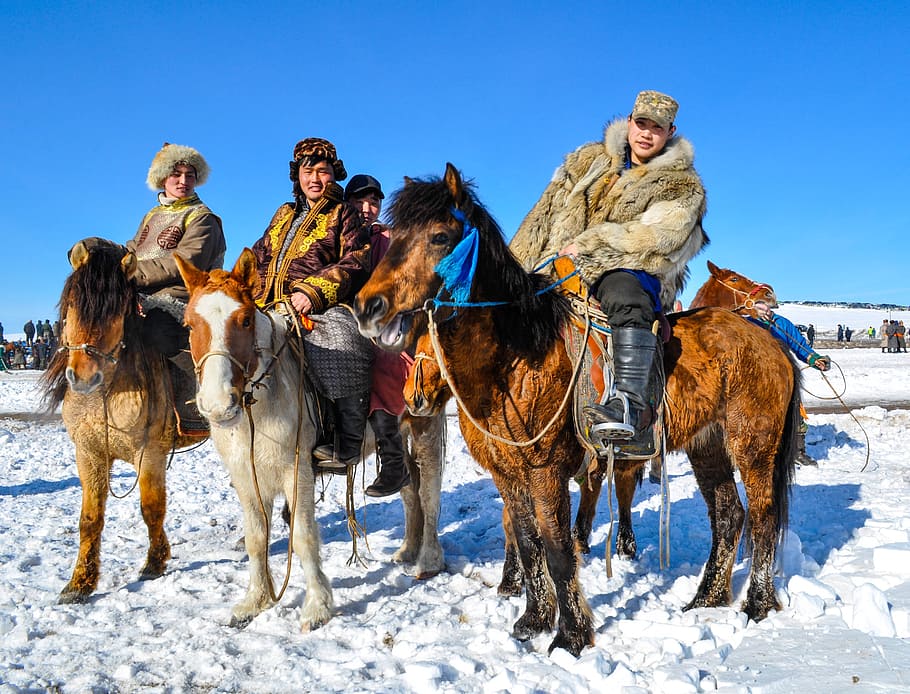British Chef Si King Highlights Climate Action for Mongolian Herders
Best known as one half of the Hairy Bikers, Si King traded the kitchen studio for the remote steppes of Mongolia to film an episode centered on food, survival, and resilience.

As global leaders prepare to gather in Bonn for climate talks leading up to COP30, British chef and television personality Si King is using his platform to spotlight the urgent need for climate adaptation among some of the world’s most vulnerable food producers: Mongolia’s pastoral herders. In a newly released episode of the UN’s Recipes for Change series, King documents his journey through rural Mongolia with the International Fund for Agricultural Development (IFAD), demonstrating how simple yet effective climate adaptation investments can protect both traditional livelihoods and global food supplies.
A Culinary Journey with Climate Impact
Best known as one half of the Hairy Bikers, Si King traded the kitchen studio for the remote steppes of Mongolia to film an episode centered on food, survival, and resilience. His visit took him deep into the countryside where he cooked alongside herder families participating in IFAD’s Market and Pasture Management Development Project, a joint initiative between IFAD and the Mongolian government.
The project offers rural families support in pasture management, animal breeding, and fodder storage to help them withstand increasingly severe weather conditions. “I am admirative of the willingness and courage of Mongolian herders to learn how to adapt to fast-changing and extreme weather conditions,” said King. “Adapting to climate change is essential and urgent to preserve food production and the ancestral ways of life of Mongolian herders.”
Climate Crisis in the Mongolian Steppes
Mongolia’s pastoralists—who represent about one-third of the country’s population—have long lived in harmony with their harsh environment. But in recent decades, the escalating impacts of climate change have begun to outpace traditional knowledge and coping mechanisms.
This past winter, the country endured one of its worst cold seasons in decades. Temperatures plunged below -40°C, killing 7 million livestock—a staggering 13% of Mongolia’s total herd. With livestock outnumbering people by approximately 20 to 1, the loss represents both an economic and cultural catastrophe. Thousands of herder families, left without livelihoods, have been forced to migrate to urban centers.
Hot summers, drought, degraded pastureland, and increasingly frequent dzuds (climate-induced harsh winters) are threatening the centuries-old pastoral lifestyle, along with the country’s ability to contribute to global food supplies.
Simple Adaptations, Profound Impact
The IFAD project Si King visited is based on the principle that modest but targeted investments can make an outsized difference for small-scale producers. These include:
-
Pasture management training to prevent overgrazing and improve regrowth.
-
Veterinary services to improve livestock survival.
-
Fodder and hay storage to feed animals through winter.
-
Early warning systems to help families protect herds before storms hit.
-
Water wells and mobile shelters for improved livestock care.
The results are tangible: better pasture quality, improved animal health, and higher productivity—outcomes that directly enhance herders’ resilience and self-sufficiency.
A Global Call for Climate Investment
Small-scale farmers like the Mongolian herders—who typically manage less than two hectares of land—produce about 35% of the world’s food, yet they receive less than 1% of global climate finance, according to IFAD. This disparity threatens global food security as climate shocks become more frequent and severe.
IFAD estimates that US$75 billion in annual investment is needed to help smallholder farmers in developing countries adapt to climate change. Without this, food production could fall dramatically. The World Meteorological Organization recently warned that global temperatures could reach 2°C above pre-industrial levels within five years, a milestone that could slash crop yields by 25% by century’s end.
“The investment you make now is what you will be bequeathing the next generation and your children and grandchildren,” Si King said, urging urgent action. “There is no Planet B.”
Amplifying Voices Ahead of COP30
Si King’s message, captured on camera in the Mongolian highlands, adds a powerful voice to ongoing international efforts to push for climate adaptation financing and grassroots-led solutions. His collaboration with IFAD aims to bring visibility to the lived experiences of herders and small-scale farmers, ensuring their needs and innovations are represented in global policy dialogues like COP30.
“Our global food system relies on rural communities who are on the front lines of climate change,” said an IFAD spokesperson. “They need tools, knowledge, and financing—urgently. Stories like Si King’s help connect the dots between climate action, food security, and global responsibility.”
Recipes for Resilience
The Recipes for Change series is part of IFAD’s broader effort to humanize climate stories through food and culture. By showing how traditional recipes are shaped by environmental conditions and the struggle to preserve them in a warming world, the series builds empathy and encourages support for agricultural adaptation efforts.
As the Bonn Climate Change Conference unfolds, Si King’s visit to Mongolia offers a timely reminder: investing in small-scale agriculture isn’t just about preserving cultures—it’s about safeguarding the future of global food.
Tags:
ALSO READ
AI-powered models revolutionize disease-resistant crop breeding for global food security
Agricultural land degradation threatens food security in Arab countries
India's Agricultural Renaissance: From Food Security to Global Leadership
Soft Electron Beams Revolutionize Egg Safety and Food Security Worldwide










